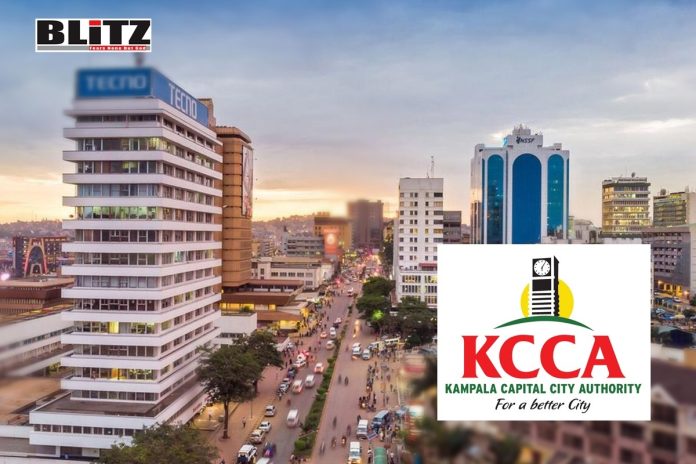Miria Mutuwa’s hospital bed became a stark symbol of the hidden costs of Kampala’s ambitious ‘Smart City’ venture. Her once-thriving livelihood as a street food vendor abruptly transformed into a harrowing tale of pain and suffering. Burned by scalding cooking oil during a confrontation with Kampala City Council Authority (KCCA) enforcement officers, Mutuwa’s plight epitomizes the harsh reality faced by many female vendors navigating the unforgiving streets of Kampala.
Prior to the tragic incident, Mutuwa was a familiar face along Mukasa Kafumbe road, serving up cassava chips, fried chicken gizzards, and tea to sustain her young family. Yet, on that fateful day of January 30th, her life took an irreversible turn. Engulfed in a scuffle over her goods, Mutuwa found herself slipping into a pan of boiling oil, leaving her with severe burn injuries and shattered dreams.
Her story, however, is not an isolated incident but a chilling reminder of the systemic injustices plaguing female vendors in Kampala. Despite promises of formal regulation by KCCA, the absence of viable licensing mechanisms has left street vendors like Mutuwa in legal limbo, vulnerable to arbitrary enforcement actions.
In a groundbreaking move, Esther Apio and Hamida Nakayaga, two brave female vendors, initiated a landmark lawsuit against KCCA officers, alleging “torture and inhumane treatment.” Their courageous stance seeks not only compensation for their losses but also accountability for the “high-handed, oppressive, and unconstitutional” conduct of KCCA officers.
Nakayaga’s account of being beaten, strangled, and humiliated underscores the gendered violence inflicted upon female vendors. Stripped of their dignity and targeted in ways only women can understand, they endure physical and psychological trauma at the hands of those entrusted with upholding the law.
The legal battle waged by Apio and Nakayaga, supported by organizations like the Juakali Initiative, signals a glimmer of hope amidst the prevailing darkness. The passage of the Human Rights (Enforcement) Act of Uganda 2019 provides a legal framework to hold perpetrators of human rights violations accountable, dismantling the cloak of institutional impunity shielding them.
However, the road to justice is fraught with obstacles. Allegations of intimidation and threats against Nakayaga underscore the risks faced by those daring to challenge entrenched power dynamics. Yet, her unwavering resolve to seek justice for herself and fellow vendors serves as a beacon of courage in the face of adversity.
Behind the veneer of Kampala’s ‘Smart City’ aspirations lies a stark reality: the criminalization of poverty and the marginalization of vulnerable communities. The intensified enforcement of illegal trading laws, coupled with prohibitive fines and punitive measures, exacerbates the plight of female vendors struggling to eke out a living in the bustling streets of Kampala.
KCCA’s attempt to relocate vendors to a newly created market, marred by exorbitant fees and inadequate facilities, exposes the hollowness of its inclusive rhetoric. For vendors like Susan Birike, grappling with the absence of childcare facilities and sanitary amenities, the market offers little respite from the daily struggles of survival.
The persistent calls for accountability, echoed by organizations like the Uganda Human Rights Commission, demand a reckoning with the dehumanizing treatment meted out to female vendors. The tragic deaths of Olivia Basemera and the grievous injuries inflicted upon Lowena Nankya serve as stark reminders of the human toll exacted by unchecked abuses of power.
Despite promises of reform and pledges to uphold human rights, the KCCA’s track record remains marred by impunity and indifference. Calls for transparency and accountability fall on deaf ears as Mutuwa’s agonizing ordeal continues to be met with silence and evasion.
As Mutuwa’s scars bear witness to her ordeal, the fight for justice rages on. For her, and countless others like her, the pursuit of justice is not merely a legal battle but a quest for dignity, respect, and the recognition of their inherent humanity.
In the face of adversity, Mutuwa’s resilience endures as a testament to the indomitable spirit of Kampala’s female vendors. Their voices, once silenced by oppression and neglect, now resonate with defiance and determination, heralding a new dawn of accountability and justice in the streets of Kampala.




